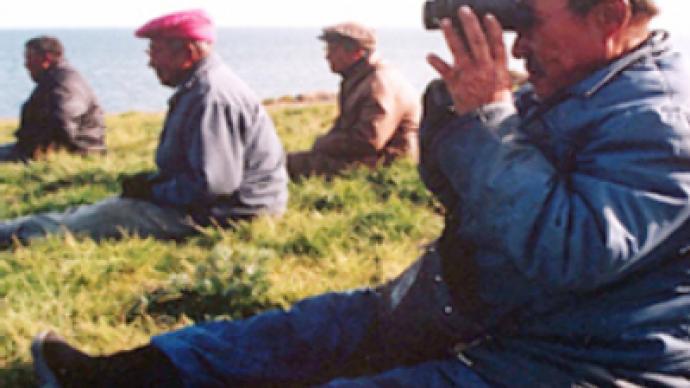Alaska's Russian neighbours protest against U.S. oil plans

Natives of the Russian Arctic living near Alaska fear U.S. intentions to resume developing oil and gas resources on Chukotka Sea shelf may lead to an ecological catastrophe.
Representatives of the native peoples of Russia’s Far Eastern Chukotka Peninsula have called on the American people, Arctic countries, the international community and greens to suspend the development of hydrocarbons in the area until ecologically safe ways of transporting them from the Chukotka Sea shelf are found, Russia’s RIA Novosti news agency says.
On September 16 the U.S. House of Representatives approved a bill permitting oil and gas development on the U.S. sea shelf except for the Gulf of Mexico area. It also recommended that President Bush implement the construction of a pipeline to transport gas from the Alaska coast as soon as possible.
The activists say they are bewildered by the stance of the U.S. Republican vice presidential candidate Sarah Palin, who supports the idea of developing oil and gas resources on the Alaskan shelf, alongside U.S. President George W. Bush and the U.S. Republican presidential candidate John McCain.
“She is the Governor of Alaska and she should have been protecting the interests of the natives in the first place,” they say.
As Russia’s Vzglyad daily says, U.S. shelf development and, in particular, wells in Alaska are part of John McCain’s election campaign.
The U.S. is eager to decrease its dependence on oil imports and to reduce fuel costs.
The move has already provoked mass protests among Alaskan natives, who constitute a fifth of the state’s population.
America’s Alaska and Russia’s Chukotka peninsula are divided only by the narrow Bering Strait.
A number of accidents have already done damage to the region’s ecology.
In 1989 the supertanker Exxon Valdez collided with a reef and more than 40 tonnes of crude oil were spilled into the water. More than 2km of the coastline was polluted and according to estimates 250,000 sea birds, 2,800 sea otters, 300 seals and 22 killer whales died, as well as countless fish.
Fish, of course, in particular salmon, is one of the basic foods of the native peoples of Alaska and Chukotka.
In 2004 the Selendang Ayu cargo ship ran aground off the coast of Unalaska Island in western Alaska's Aleutian Islands and almost one thousand tonnes of oil was spilled, polluting the coast of Unalaska Island, which is part of the Arctic National Wildlife Refuge in Alaska, and killing a huge number of birds, fish and other sea fauna.











